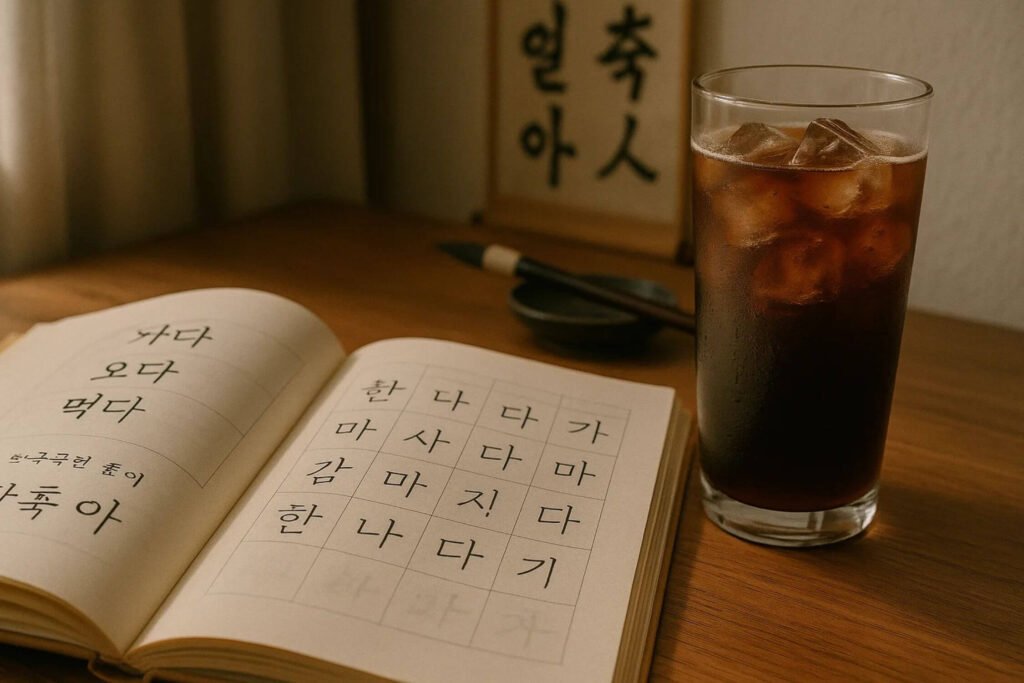If you’ve ever been fascinated by Korean culture, whether through K-pop, dramas, or just the vibrant streets of Seoul, you might have noticed that the language is full of fun, quirky expressions that add a lot of flavor to everyday conversations. Korean slang is a dynamic and exciting part of the language that reflects the creativity, humor, and fast-paced lifestyle of young Koreans today.
Whether you are learning Korean or just curious about the culture, understanding Korean slang words and phrases can help you connect better with native speakers and feel more at home in Korea. This blog post introduces you to 10 fun Korean slang words and phrases that you should definitely know. Not only will these expressions make your Korean sound more natural, but they’ll also give you a glimpse into the culture behind the language.
1. 대박 (Daebak) – “Awesome” or “Jackpot”
One of the most popular Korean slang words, 대박 (daebak) literally means “jackpot,” but it’s used to express excitement or amazement. If something is fantastic or unexpectedly good, Koreans often say 대박. It’s similar to saying “awesome” or “amazing” in English.
Imagine your favorite K-pop group suddenly dropping a surprise album. You’d probably exclaim, “대박!” It’s such a versatile phrase that you’ll hear it everywhere — from social media posts to daily conversations among friends.
For learners of Korean, mastering 대박 is a quick way to sound more natural and enthusiastic. Just be careful not to overuse it, or it might lose its charm!
2. 헐 (Heol) – “OMG” or “No way!”
If you want to express surprise or disbelief, 헐 (heol) is the go-to slang word in Korea. It’s like saying “OMG” or “no way!” in English. This short exclamation is packed with emotion and is used when you’re shocked or stunned by something.
For example, if your friend tells you a shocking story, you might respond with a quick “헐!” to show your disbelief. It’s a very casual expression, mostly used among younger Koreans, so you’ll want to use it in informal settings.
Interestingly, 헐 is often used in online chats, text messages, and social media, making it a handy expression to know if you follow Korean influencers or K-pop idols.
3. 쩔어 (Jjeoreo) – “Sick” or “Cool”
Another exciting Korean slang is 쩔어 (jjeoreo). It’s a way to say something is “cool” or “sick,” usually referring to someone’s skills or something impressive. This word is often used in the context of music, sports, or any area where talent shines.
For instance, if you see a dancer with incredible moves or a rapper spitting fire lyrics, you can say “쩔어!” to express how impressed you are. It carries a very strong positive vibe and shows admiration.
If you want to sound like a real Korean youth, adding 쩔어 to your vocabulary is a must. It’s especially popular among fans of hip-hop and street culture.
4. 꿀잼 (Kkuljaem) – “Super Fun” or “Very Entertaining”
When Koreans want to say something is really fun or entertaining, they often use the slang 꿀잼 (kkuljaem). The word 꿀 (kkul) means “honey,” symbolizing something sweet or great, and 잼 is short for 재미 (jaemi), which means “fun.”
So, 꿀잼 literally translates to “honey fun,” which is a cute way of saying “super fun” or “very enjoyable.” You can use it to describe a movie, a game, or even a night out with friends.
For example, after watching a comedy drama that made you laugh nonstop, you might say, “That show was 꿀잼!” It’s a casual and cheerful way to share your excitement.
5. 노잼 (Nojaem) – “No Fun” or “Boring”
On the flip side of 꿀잼 is 노잼 (nojaem), which means “no fun” or “boring.” This slang is used to quickly let someone know that something is dull or uninteresting.
If you go to a party and find it boring, you might text your friends saying, “여기 완전 노잼이야,” which means “This place is totally no fun.” It’s a straightforward and widely used expression, especially among younger Koreans.
These two slang words, 꿀잼 and 노잼, are often paired to describe experiences in a fun, catchy way — almost like “fun vs. no fun.”
6. 빡세다 (Bbakseta) – “Tough” or “Hard”
If you want to describe a situation or task that is very difficult or demanding, Koreans use the slang 빡세다 (bbakseta). It means “tough” or “hard,” and it’s a bit informal and edgy.
For example, if you’ve had a long day at work or school that drained all your energy, you might say, “오늘 진짜 빡셌어,” meaning “Today was really tough.”
This slang reflects the pressure and hustle many young Koreans experience, making it a realistic phrase to know if you want to sound current and relatable.
7. 완전 (Wanjeon) – “Totally” or “Completely”
Although 완전 (wanjeon) is a standard Korean word meaning “complete” or “total,” it’s used very often as slang by younger Koreans to emphasize statements, similar to “totally” or “completely” in English.
For example, if you really love a certain food, you might say, “이거 완전 맛있어!” meaning “This is totally delicious!”
Using 완전 adds a casual, friendly tone to your speech and makes your sentences more expressive without being too formal.
8. 멘붕 (Menbung) – “Mental Breakdown” or “Mind Blown”
This slang is a bit more modern and humorous. 멘붕 (menbung) is short for 멘탈 붕괴 (mental bung-goe), which means “mental breakdown.” It’s used when someone is completely overwhelmed or shocked, usually in a funny or exaggerated way.
For example, if you failed an exam you thought was easy, you might say, “멘붕 왔어,” meaning “I had a mental breakdown.”
This phrase is popular on social media and among students, making it a great slang word to show strong emotional reactions in a lighthearted manner.
9. 사이다 (Said-a) – “Refreshing” or “Relieving”
You might have heard Koreans use 사이다 (saida) when someone does or says something that feels refreshing or satisfying, especially after a frustrating situation. The word literally means “cider” (a type of soda), but slang-wise, it represents a breath of fresh air or relief.
If someone gives a clever comeback or solves a tricky problem, you can say “사이다 발언!” meaning “That was a refreshing comment!”
This slang is often used when someone speaks honestly or boldly, cutting through nonsense and making people feel good.
10. 불금 (Bulgeum) – “Fire Friday” or “TGIF”
This fun slang combines 불 (bul), meaning “fire,” and 금 (geum), short for 금요일 (Friday). 불금 (bulgeum) literally means “fire Friday,” and it refers to the excitement and energy people feel on Friday night after a long workweek.
If you’re ready to party or relax on a Friday night, you can say, “오늘 불금이다!” meaning “It’s fire Friday!”
불금 captures the Korean youth’s love for weekend fun and socializing and is frequently used in conversations, social media posts, and ads.
Bottom line
Korean slang is a lively and ever-changing aspect of the language that reflects Korea’s unique culture and the playful spirit of its people. From expressions like 대박 to 불금, these fun phrases add personality and energy to everyday conversations.
Whether you are a Korean language learner or just a fan of Korean pop culture, knowing these 10 fun Korean slang words and phrases will help you connect deeper with the language and culture. So next time you chat with a Korean friend or watch a K-drama, try throwing in some slang — it might just make the experience more exciting and authentic.
Now that you know these expressions, why not start practicing? 대박, right?



